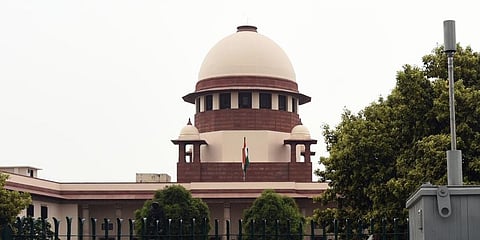

NEW DELHI: The Supreme Court has sought a response from the central government on a petition challenging certain provisions of the National Green Tribunal Act, 2010.
The plea has challenged the Act on several grounds including the bar on approaching the tribunal after five years and 60 days to seek compensation, relief or restitution of the environment, saying it acts as a hindrance for aggrieved people to exercise their fundamental rights, which as per settled law is arbitrary and unconstitutional.
The petition says that the hazardous effects of pollution caused by any industry/industrial activity on the ecology and the environment are not always necessarily felt within five years. In many cases of environmental pollution, such adverse effects are felt much beyond the period of five years. The effects may be felt decades later or may even be inter-generational.
“It has often been the case that the generation of people living around such polluting industry do not exhibit any adverse symptoms from the pollution caused but the same are made abundantly apparent only with the coming of the next generations.
Similarly, it is not always the case that due to the effect of pollution or the hazard caused by the industries, the environment begins to immediately deteriorate,” the petition reads.
“... Furthermore, such prescription of limitation severely cripples the tribunal from exercising its functions and powers for the protection and preservation of environment and environmental rights, and thus, goes completely against the reasons
for which the tribunal was established,” it added.
The petition says that in this background the provisions of limitation prescribed under the National Green Tribunal Act, 2010, namely, in Sections 14, 15 and 16 of the Act are required to be considered.
The petition filed by advocate Abhimanue Shrestha said that the gap in the remedies available under Article 32 and 226 of the Constitution, as against what is available in the Act, creates a scenario that becomes inexplicable in the context of
environmental matters.